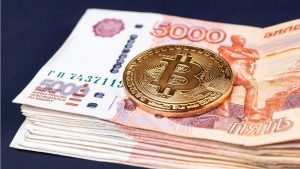
Recently, the Ministry of Finance of Russia presented to government an updated version of the bill ‘On Digital Currency’ that aims to regulate Russia’s crypto market. Russian media reports have provided details about the law’s provisions this week.
The draft states that qualified investors or “professional purchasers” of digital currency will be granted unrestricted access. However, ordinary Russians will only be allowed to purchase 600,000 rubles (approx. Each year, $7,000 worth of cryptocurrency will be available to ordinary Russians. After they pass a special exam.
Russian citizens who fail the test will not be permitted to acquire coins of a total value less than 50,000 rubles per year (around $600 at current exchange rates), Interfax reported, quoting a source with knowledge of the matter.
According to the new law, digital currency is defined as “a collection of electronic data that can be accepted in an information system as a means for payment that is not the Russian Federation’s monetary unit or as an investment.” According to the report, digital currency is considered Russian property.
This language seems to give the legal basis for the use of cryptocurrencies in payment transactions. The bill also states that Russian legal entities (including subsidiaries of foreign companies or international organizations) cannot accept digital currency for payment for goods or services.
While the finance ministry has been pushing for legalization of cryptocurrency circulation in Russia, the central bank has rejected the idea. suggested banning crypto-related activities like the issuing or trading digital coins. While most other institutions in Moscow support the Minfin‘s approach, there is a consensus against payments with any currency other than the ruble.
Russia will introduce strict standards for cryptocurrency companies
The draft law “On Digital Currency” will impose strict requirements on crypto platforms operating in the Russian Federation. A ‘exchange operator’ is a person who offers digital currency purchases or sales on its behalf. It must have at least 30,000,000 rubles capital. 100 million rubles is the minimum threshold for “operators of digital trading platform”, or those who conduct organized auctions.
These businesses will also have many other responsibilities if the bill is approved as it stands. They will be required to prepare annual reports, maintain records of digital currency owners, store and back up trading data daily, and carry out internal audits. A special register will be created for service providers. They will then be licensed by the government and monitored by an authorized body.
According to Mikhail Uspensky, a blockchain lawyer and commentator for Kommersant, the requirements are “extremely overstated” and only large financial institutions will be able meet them. Only Russian entities will be allowed to apply for the position of crypto operator. For example, foreign exchanges will need to set up a local subsidiary in order to get a license. However, many may not be able to do so due to western sanctions against Russia’s war in Ukraine.
The Russian business newspaper also stated that only authorized users will be allowed to purchase and sell digital currency. Fiat withdrawals and deposits will only be possible through bank accounts. Crypto platforms will have to report suspicious transactions to Rosfinmonitoring’s financial watchdog. “Electronic wallets to digital currencies” will need to be certified, but only wallets that are part of the Russian crypto infrastructure.
After registering with the government, both individuals and companies can participate in crypto mining under the bill “On Digital Currency”. Private individuals minting digital currency do not need to register if they use less than the limits set by the authorities.
The law will be effective if approved by Russian lawmakers. The State Duma is the lower Russian house of parliament and is currently reviewing amendments to regulate taxation for crypto-related operations within the country.
